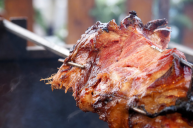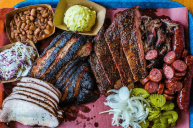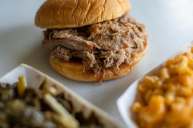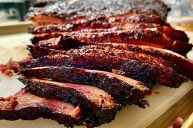When our upright ancestor, Homo erectus, stumbled upon the world-altering discovery of fire 1.5 million years ago, the second greatest invention in mankind's history came shortly after: barbecue. Historians admit the timeline is foggy on exactly when and how fire was discovered. Regardless, primitive humans slowly learned to harness the power of burning wood to stay warm, cast light upon dark nights, and ultimately cook their food. Yes, of the endless innovations concocted by TikTok foodies and Michelin star chefs alike, three letters stand the test of time as the world's oldest form of cooking: BBQ.
Videos by Wide Open Country
Modern-day barbecue encompasses four sub-genres in the United States: Texas, Kansas City, Memphis, and Carolina. Whether you're scouring barbecue joints for Austin's best brisket or seeking out Rodney Scott's famous whole hog BBQ in Charleston, you'll find staunch defenders in each of these unique traditions prepared to go rib-for-rib, brisket-to-brisket to showcase their barbecue as the supreme style. No matter your preference, barbecue's true roots trace back to the 16th century when Spanish explorers and the ensuing European settlers that followed encountered the Taino people, an indigenous Caribbean tribe, using specially designed wooden grates to cook food overtop an open flame; they called it "barbacoa." Those explorers took one bite, their taste buds lit up with joy, and they transported this new cooking method with them as they turned north. Barbecue continued evolving as regional traditions took hold across the south and southeastern parts of our modern-day United States. Each place developed its own customs for cooking, saucing, seasoning, and, naturally, language. Over time, different spellings and uses for the word "barbecue" took up residence in the ever-confusing English language.
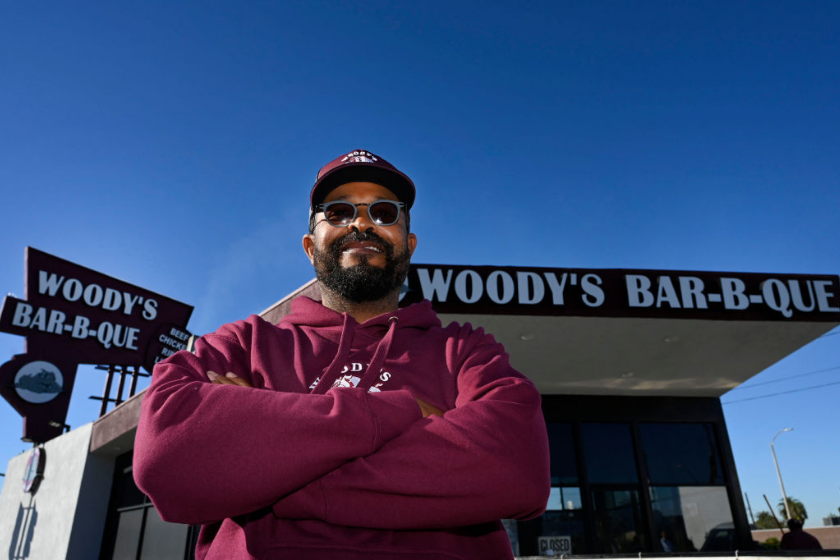
Brittany Murray/MediaNews Group/Long Beach Press-Telegram via Getty Images
Grab your handy Merriam-Webster dictionary (do people still read paper books?), and you'll find barbecue spelled as such, with "barbeque" mentioned alongside as a less-common spelling. Though it's not exactly clear how or when that pesky 'Q' made its way into the conversation, some believe the French phrase barbe à queue, which translates to "from beard to tail" and refers to cooking full hogs, is the spelling's origin. Chalk it up to French influence or just a ton of typos over the decades, but you'll now find "barbeque" used by hundreds of restaurants and cookware brands; the shorthand "BBQ" followed soon after and remains a staple on many pitmaster's menus across the country. Technically, barbecue is the correct way if you're planning to enter your local spelling bee, but all the spellings mentioned — even occasional off-shoots like bar-b-q or bar-b-que — can be found today.
Even George Washington, who wrote about attending overnight barbecues in the years prior to, you know, winning the Revolutionary War, spelled it "barbicue" in his personal diary. Honestly, you can't go wrong no matter how you spell it, and I couldn't find a single barbecue lover to debate you when that smoked brisket and rack of ribs hits the picnic table for dinner.
This article was originally published August 21, 2021. It has since been updated.

